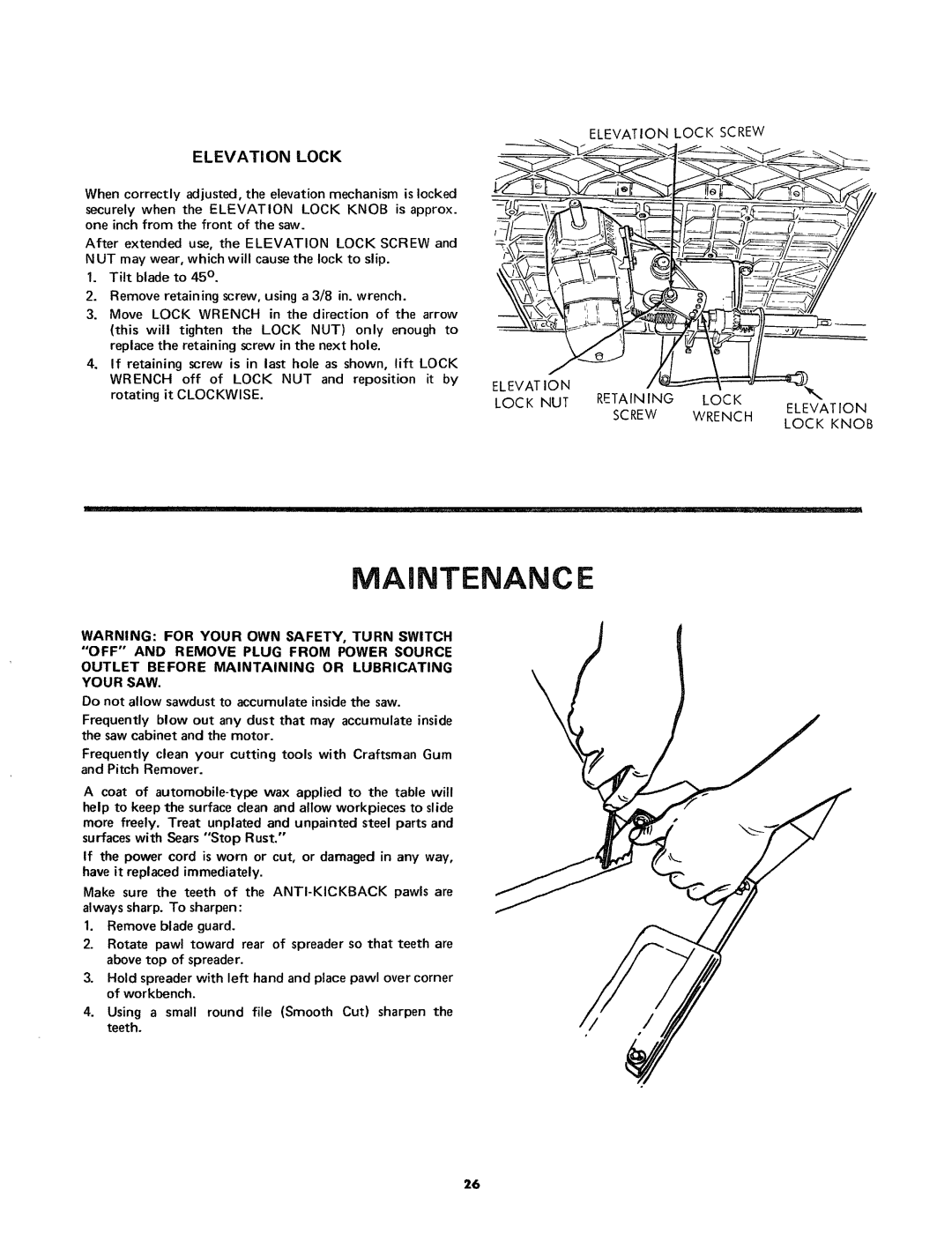
ELEVATION LOCK
When correctly adjusted, the elevation mechanism is locked
securely when the ELEVATION LOCK KNOB is approx. one inch from the front of the saw.
After extended use, the ELEVATION LOCK SCREW and NUT may wear, which will cause the lock to slip.
1.Tilt blade to 45 °.
2.Remove retaining screw, using a 3/8 in. wrench.
3.Move LOCK WRENCH in the direction of the arrow (this will tighten the LOCK NUT) only enough to replace the retaining screw in the next hole.
4.If retaining screw is in last hole as shown, lift LOCK
WRENCH off of LOCK NUT and reposition it by rotating it CLOCKWISE.
ELEVATION LOCK SCREW
ELEVAT ION
LOCK NUT RETAINING LOCK ELEVATION
SCREW WRENCH LOCK KNOB
MAINTENANCE
WARNING: FOR YOUR OWN SAFETY, TURN SWITCH "OFF" AND REMOVE PLUG FROM POWER SOURCE
OUTLET BEFORE MAINTAINING OR LUBRICATING YOUR SAW.
Do not allow sawdust to accumulate inside the saw.
Frequently blow out any dust that may accumulate inside the saw cabinet and the motor.
Frequently clean your cutting tools with Craftsman Gum and Pitch Remover.
A coat of
If the power cord is worn or cut, or damaged in any way, have it replaced immediately.
Make sure the teeth of the
1. | Remove blade guard. |
|
|
2. | Rotate pawl toward rear | of spreader so that teeth are |
|
| above top of spreader. |
|
|
3. | Hold spreader with left hand and place pawl over corner |
| |
| of workbench. |
|
|
4. | Using a small round file | (Smooth Cut) sharpen the | / |
| teeth. |
| |
26
